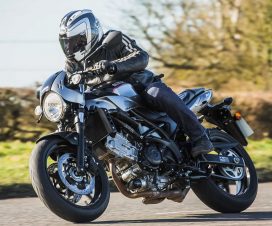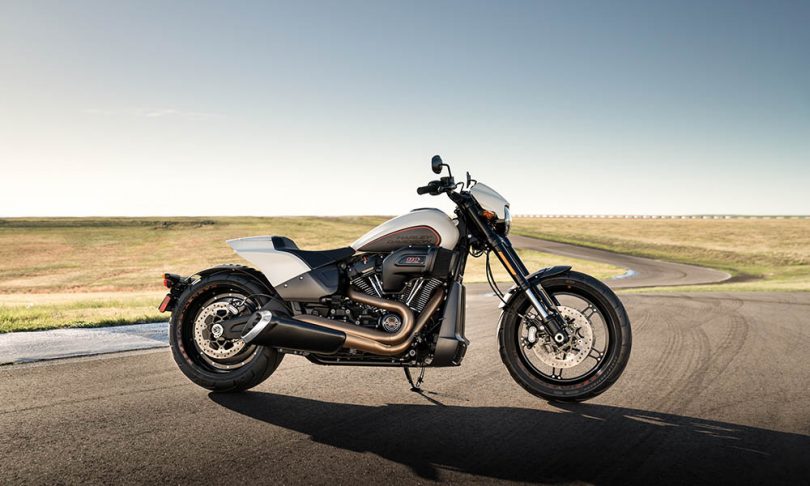 |
Buying a used motorcycle is terrifically exciting. Everyone loves the thrill of a new machine. The sleek lines, polished body, and deep revs are designed to make us drool… but before you buy your new (used) motorcycle, there are some things you should be keeping in mind. Here is our free, thirty-three-point checklist of what to look for in a used motorbike… and what to look out for, instead!
33 Ways to Check a Used Motorcycle Before You Buy
1 – The Exhaust Test
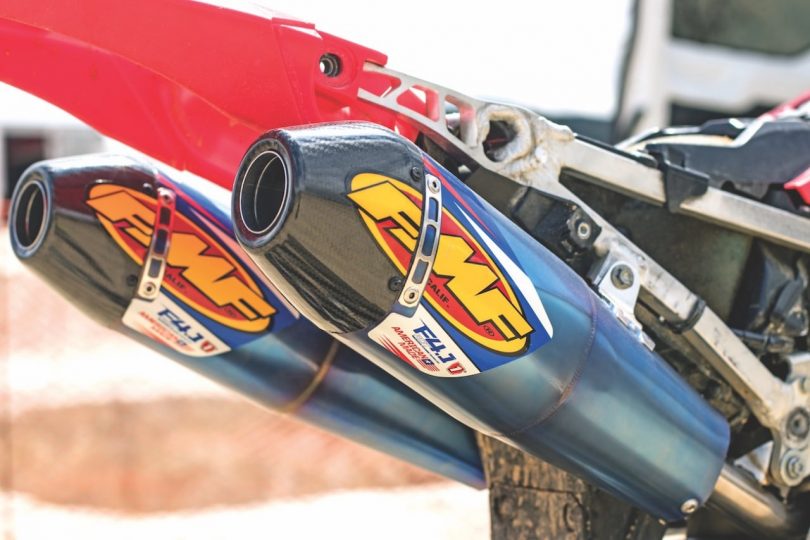
Source: motocrossactionmag.com
Hold a hand over the exhaust (without injuring yourself!). If there are any noises, as a result, the engine is troubled. You’re welcome.
2 – Broken Bike Bits
If the bike seems to be made of mismatched parts, then it was probably in an accident at some point. It’s up to you if you spend on a bike like this, but be careful of potential safety issues, warn Rosenfeld Injury Lawyers, who secures the most favorable recovery for injured motorcyclists.
3 – Brake
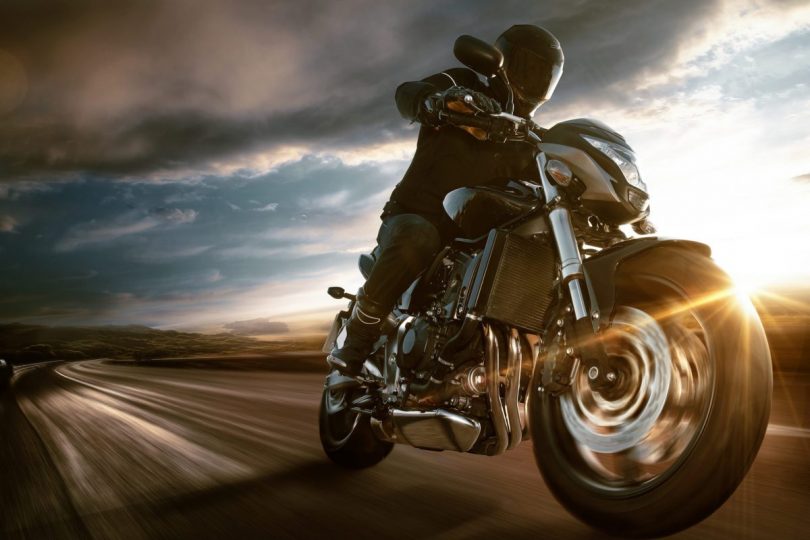
Source: backaline.com
Do the breaks work? Do they bump and grind? A squeaking brake probably needs the pad replaced; a grinding break means a deeper problem. Take it back!
4 – Logbook Check
The bike should come with a V5 owner’s logbook. If the person selling the bike doesn’t have this, then there’s a high chance the bike is stolen. Do not buy it!
5 – Suspicious Sump Sounds
If you hear a low-pitched banging noise around the sump area of the bike, don’t invest. This sound is the sound of the back end of the bike dying and will cost more to repair than the bike is worth.
6 – MOT Check
How old is the bike? If it’s more than a few years old, you need to know when the MOT runs out…
7 – How Does it Handle?
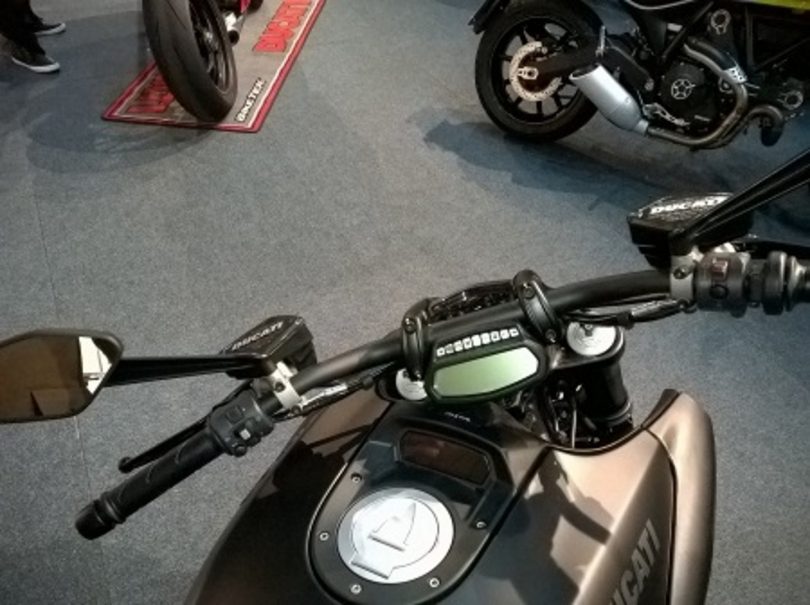
Source: bikefarmmv.com
Play around with the steering – does it tug? If it pulls to one side, there’s something wrong with the bars. If it crunches run a mile. If it grates against itself – even worse.
8 – Document Check
The paperwork needs to be filled in and signed. If the motor vehicle departments in your area haven’t signed them off, then don’t buy. Make sure they aren’t forged, to the best of your awareness.
9 – Dodgy Sellers
How does the seller seem? Are they nervous? Sweating? Are there fourteen other bikes of varying heights and shapes lying around their garage? Signs of a dodgy seller should never be ignored.
10 – Handlebar Inspections
Look at the handlebars closely. If the bike has been in an accident that isn’t on the logbook there will be scratches or tears on the handlebars.
11 – Or Exhaust Inspection
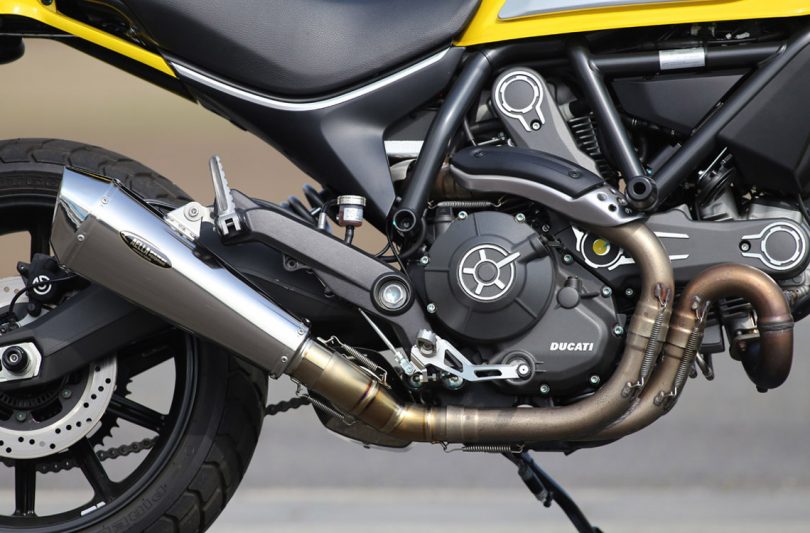
Source: webike.com
Similarly, the exhaust pipe will show signs of scratching if the bike has been in an accident or written off.
12 – Screaming Sounds
If there is a high pitched squeal coming from the cylinder heads, then that new bike is a broken bike. The tappets might need to be replaced… the replacement is pricey. They could just be loose but are you willing to take that chance?
13 – Oil Leaks?
While we are talking cylinder heads… if they are oily it’s a no-go.
14 – Tired tires?
Tires are exceptionally important. A blow out on the road could kill you. 3.6 mm of tread depth all the way around to be sure.
15 – Watermark Check
If there is no watermark in the logbooks do a full 180.
16 – History Check
The V5 logbook should include details of previous owners. If the person selling it says there have been 2, but the logbook says 7, you might not want to trust them…
17 – How Does it Sound?
If the exhaust is excessively loud there is something worrying going on. If there is a hole in it, it’s an expensive fix. It’s also an MOT fail.
18 – (Black) Smoke Signals
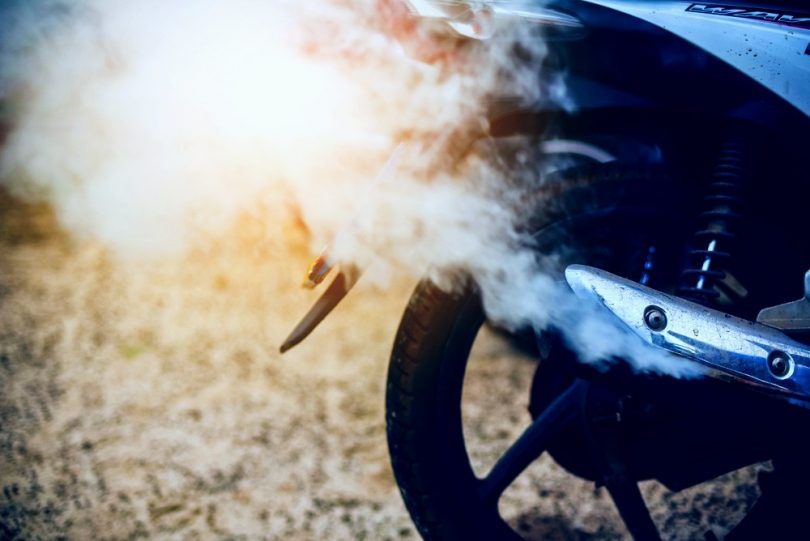
Source: partzilla.com
A broken engine may well have black smoke belting out of it. Black smoke means dead pistons. It will be a lot cheaper to just buy a different bike than to replace pistons.
19 – The Rust Factor
Check the whole bike for rust. The whole bike. If the rust ratio is high – don’t buy, Pay particular attention to the cylinder heads and the fork seals.
20 – Foot Pedal Feel
How do those foot pedals look? How do they feel? Anything other than normal could indicate a past filled with unreported crashes. You have been warned.
21 – Take a Buddy
If you are a member of a bike crew, take someone who knows about bikes with you. Just a thought.
22 – Chassis Damage
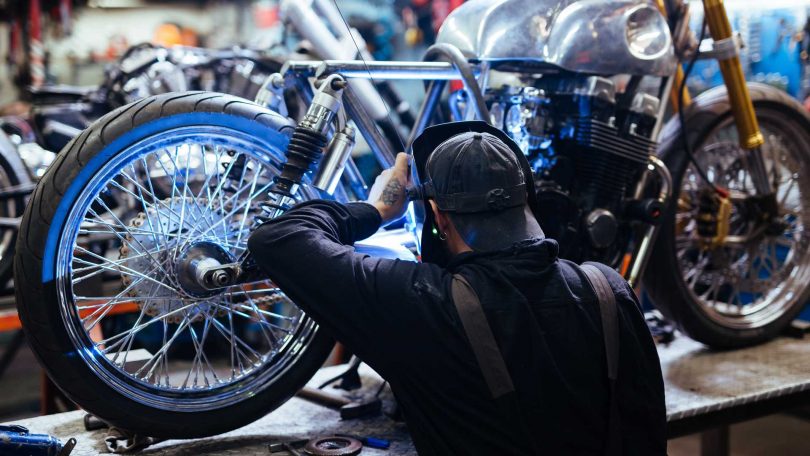
Source: rideapart.com
How does the bike’s body look? Again, dents, scratches, unexplained rust… avoid!
23 – Price?
Before you agree to buy, check the real price of your bike, brand new. Make sure you are getting a deal for sacrificing your warranty.
24 – How’s the Start?
Does it start up the first time? If not, why not?
25 – Go with your Gut
There’s no better advice than to go with your gut. A seller or bike you don’t trust isn’t worth investing in.
26 – Bouncy, bouncy
Lift the bike up by the handlebars and drop it, do the same for the back end. If you see oily patches, then the seals are done. They wear away over time. This job doesn’t cost much but if the seals are worn, what else is?
27 – Chain Checking 1
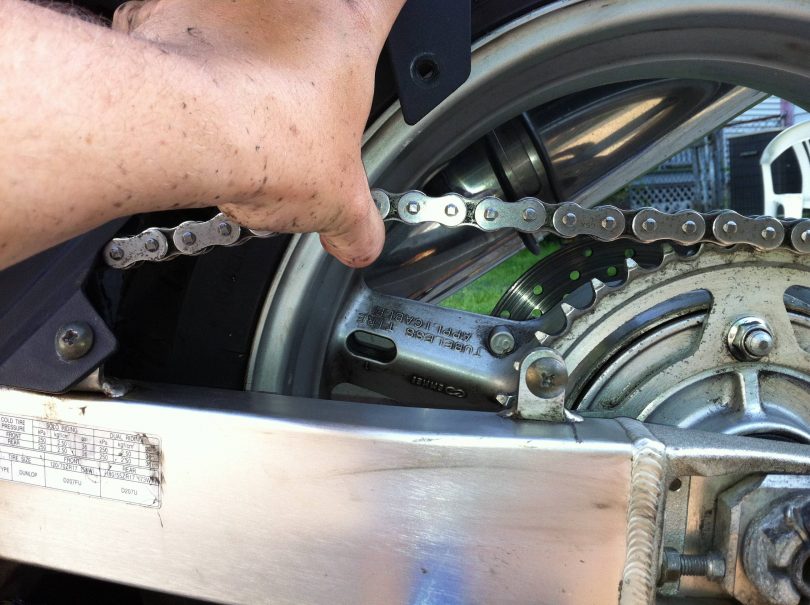
Source: gixxer.com
If the chain is rusted just walk away.
28 – Chain Checking 2
If the sprockets are worn just walk away.
29 – Dents? Bad News.
Dents can be nothing more than fender benders. When it comes to bikes, a fender bender is likely to write you off. Watch out for dents to be sure.
30 – Handling Heaven
When the bike is on and running, the bars should stay straight. Any puling, Twisting, or strange noises mean something isn’t matching up properly.
31 – The Suspicious Seller
If, as mentioned in an earlier point, the seller is a bit dodgy; ask them to switch it on for you. Sellers that don’t know how to start a motorbike are not selling their own machine.
32 – The Chain Check
If the chain is too loosely fitted make sure the control for adjustment is turned as high as it will go. If it already is, but the chain is still loose? You guessed it… find another bike to buy.
33 – The Test Run
The best way to know if a bike is worth buying is to hit the open road. Good luck out there. We hope we have prepared you for the worst.




